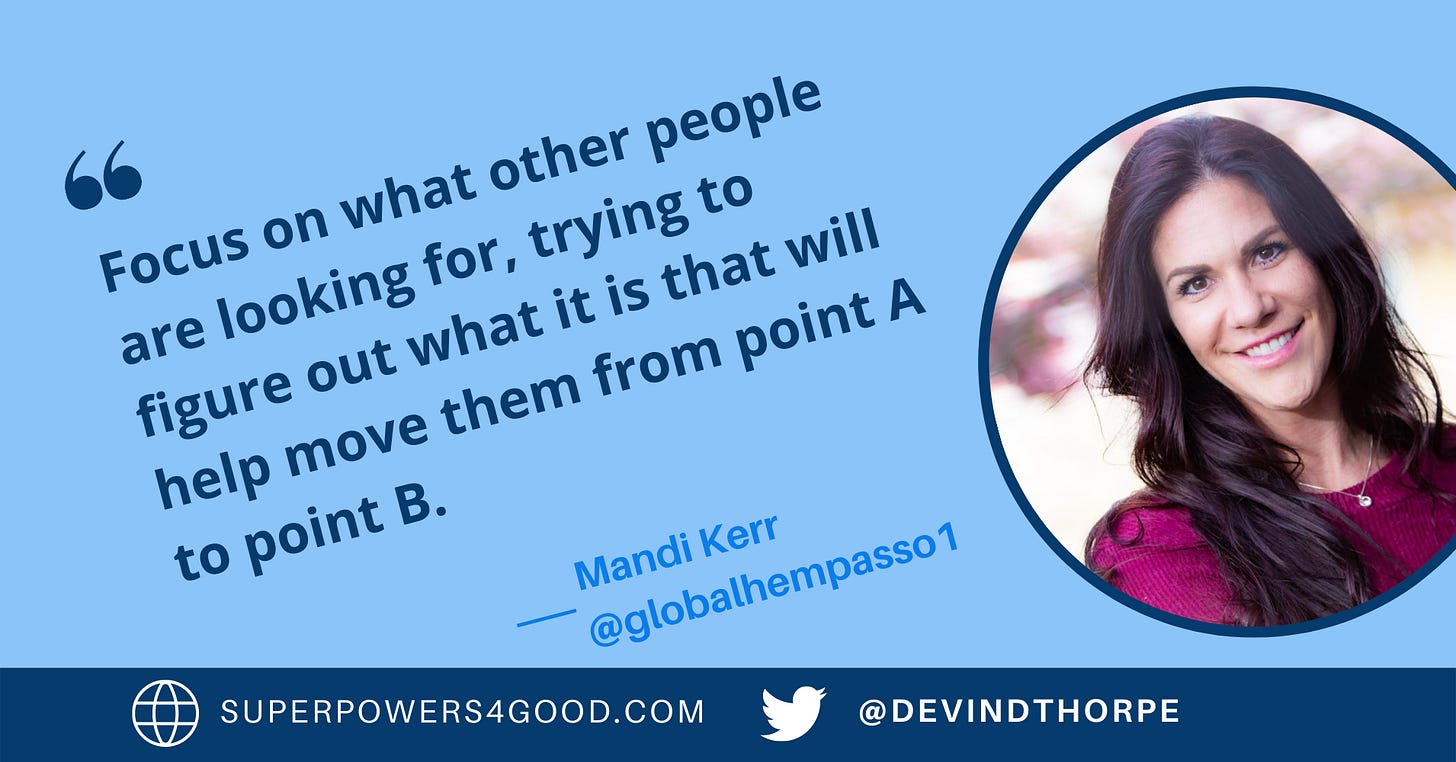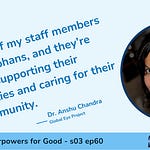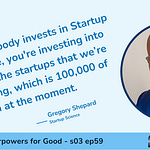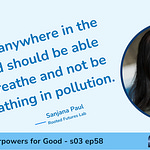Devin: What do you see as your superpower?
Mandi: I'm passionate about connecting people. I'm good at connecting people. I've been able to open doors and create this network of people for others to build relationships, especially during a time of COVID. When we switched to being so disconnected, I brought our industry together.
What’s the Deal With Hemp?
The word hemp means a lot of different things to folks. Mandi Kerr, founder and CEO of the Global Hemp Association, deals with it all the time:
Whenever I tell everybody what I'm doing and I mention the word hemp, they immediately say, “Oh, CBD,” or “Oh, you smoke?” “You consume a tincture or gummy?”
No, hemp is carbon sequestration. It's a new crop. It's revenue for our farmers. It's regenerative agriculture. It's increased yields on rotation crops. It's more insulated hempcrete walls for our building materials, safer, cleaner products.
And it allows us to shrink our supply chain and bring manufacturing and supply chain back to localized economies and provide economic development and growth. And so really, hemp is the medicine piece that we all know is 2 percent of what this plant has to offer.
Mandi, a professional networker, attended a cannabis networking event in Colorado on behalf of a client. Mandi realized that hemp could have become the primary source for plastic instead of fossil fuels. She learned that industry could have used hemp to produce plastic, but just when plastic became mainstream, hemp was marginalized as a crop legally and politically.
“It kind of infuriated me to think that we've had a solution this whole time,” she says. She was also disappointed that at this cannabis event, there wasn’t enough discussion of sustainability. She then decided to create an organization focused on hemp to help make sustainability a greater focus.
Native American Uses of Hemp
Mandi sees tremendous opportunity for hemp to benefit indigenous communities more than it already does. Hemp can play various roles in building housing, including hempcrete, which they can use for the structure.
The hemp can be grown in many climates, including places where Native Americans live, allowing them to grow the primary material for housing. Converting the raw materials into construction-ready components could provide employment as well.
Hemp-based materials have a lower carbon footprint, Mandi says, than traditional building materials.
In addition, people can eat hemp in various forms. Hemp hearts are rich in protein and omega fatty acids.
Mandi notes that studies are now being conducted to identify benefits for indigenous communities.
Industrial Uses of Hemp
There are a surprising number of hemp-based industrial uses:
Auto industry: hemp-based plastics and sealants are early candidates for use in the auto industry.
Biomedical: One company is developing skin using hemp, replacing soy as a source.
Biofuels: Refiners can use hemp as a feedstock in the production of biofuels, including biobutanol.
Textiles: Patagonia and Levi’s are both beginning to use hemp in some of their products.
Mandi says, “A lifecycle analysis was done on hemp fiber by Patagonia, and it far outweighs other materials on its carbon footprint.” There is an exciting potential for large-scale industrial use.
One of the challenges Mandi is actively working to overcome with the Global Hemp Association is stabilizing formal supply chains so tier one manufacturers can count on a ready supply.
In creating the Association, Mandi used her superpower, connecting people.
How to Develop Connecting People As a Superpower
Sometimes it feels like connecting people as a superpower is a bit difficult to measure. Mandi has put her superpower to work creating a global association as the first layer of evidence for her success.
She shared an example of what has come of that association as tangible evidence of real impact:
Yesterday we had a networking call and a young lady stood up and said, “I want to give credit back to what has happened.” She said, “I've been looking for six months for an auditor to help me in my project. And on your call, I was connected to one which allowed me to secure my funding immediately.”
Given the evidence that her superpower makes a difference for people, I asked her how to develop that superpower.
Her advice: “Focus on what other people are looking for, trying to figure out what it is that will help move them from point A to point B.” She notes that people may not always know what they need, so thoughtfully exploring their situations with them can help you identify how you can make connections that will help.
She reminded us, too, that when you add someone new to your network, you don’t just add one person, you add their entire network. The key is to add value to earn their trust to gain access to their network.
If you follow Mandi’s example and advice, you can improve your ability to make valuable connections for other people, perhaps making it a superpower for good.













